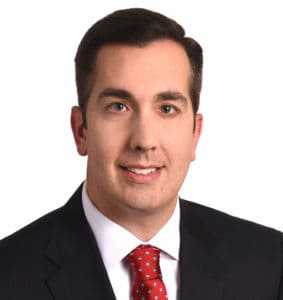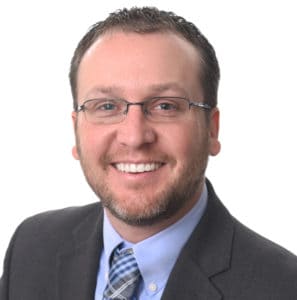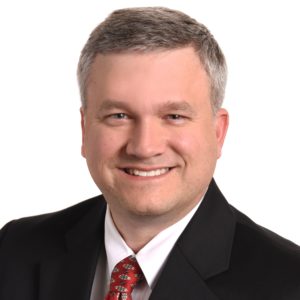
PPP Forgiveness Applications Open Today: What Your Business Needs to Know
Disclaimer: This information was correct at the time of publication; however, new guidance from government agencies may be issued at any time, causing some or all of this information to change. Please visit our COVID-19 Business Strategy Hub for the latest news and ensure you are subscribed here to receive email alerts as they are released. We are working diligently to provide the most current information as it becomes available under our COVID-19 Actionable Insights For Businesses Series.
The Small Business Administration (SBA) recently announced they would begin accepting Paycheck Protection Program (PPP) loan forgiveness applications beginning today, August 10, 2020. To start the forgiveness process, businesses should contact the bank that originated their PPP loan to determine when they will be ready to begin the process of accepting, reviewing and forwarding the PPP loan forgiveness application to the SBA for final forgiveness approval.
Remember, your bank has 60 days to review and forward your forgiveness application to the SBA, and the SBA has up to 90 days to issue its final approval. Many businesses would prefer to know the status of their PPP loan forgiveness by the end of the year. At this point, we recommend filing your forgiveness application as soon as possible. Unfortunately, if your bank and the SBA take the maximum time allowed, you will not know your forgiveness status until early next year. By filing your forgiveness application as soon as possible and monitoring your bank to push for a quick turnaround from the SBA, you may get an answer by the end of 2020.
PPP Loan Forgiveness Update
On August 4, 2020, the SBA issued additional Frequently Asked Questions (FAQs) on PPP loan forgiveness. While many of the FAQs were already addressed in prior guidance, there were a few notable clarifications that you should be aware of:
- General PPP Loan Forgiveness
- Sole proprietors, independent contractors and self-employed individuals with no employees at the time of their original PPP loan application automatically qualify to file the Form 3508EZ.
- Your bank is authorized to accept E-signatures and scanned copies of documents, including scanned and signed Forms 3508 or 3508EZ.
- If your loan is fully forgiven, you will not be responsible for paying any accrued loan interest.
- If your loan is partially forgiven or your forgiveness application is denied (i.e., no forgiveness at all), you will be responsible for paying accrued interest on the unforgiven portion of your loan from the disbursement date of the loan.
- PPP Loan Forgiveness Payroll Costs
- As stated in previous guidance, the FAQs reiterated that payroll costs both paid or incurred during your Covered Period (CP) or Alternative Payroll Covered Period (APCP) will qualify for forgiveness. That means all payments of payroll paid during your CP/APCP qualify for forgiveness (even if incurred before your CP/APCP), and all payroll incurred during your CP/APCP qualify for forgiveness (even if paid after the end of your CP/APCP with your next regular payroll run).
- Both group health and retirement benefits paid or incurred during the CP/APCP qualify for forgiveness. However, accelerated payments of these benefits from periods outside the CP/APCP will not qualify for forgiveness, nor will the portion of benefit payments deducted from your employees’ pay.
- Remember, forgivable owner compensation is capped at $20,833 for businesses electing the 24-week CP/APCP, or $15,385 for businesses electing the 8-week CP/APCP. The FAQs provided additional specific limitations, as follows:
- For C corporation owner-employees – Cash compensation is limited to 2.5/12 of actual 2019 cash compensation paid. Employer state and local taxes, health and retirement benefits are then added, but the retirement benefit is also limited to 2.5/12 of actual 2019 retirement contributions.
- For S corporation owner-employees – The C corporation additional limitations stated above also apply to S corporation owner-employees. However, for 2% or more S corporation owner-employees, health benefits cannot be included as those are already included in their cash compensation. Eligible non-cash compensation should be included on lines 7 & 8 of PPP Form 3508 Schedule A and do not count towards the overall $20,833/$15,385 individual cap.
- For General Partners – Compensation is limited to 2.5/12 of their 2019 net earnings from self-employment shown on Schedule K-1, box 14a (reduced by box 12 section 179 expense deduction, any unreimbursed partnership expenses deducted on their Form 1040 Schedule SE and depletion deductions) multiplied by .9235. Health and retirement benefits do not qualify. Also, compensation is only eligible for forgiveness if payments are made to partners during the CP/APCP.
- Self-Employed Schedule C or F – Compensation is limited to 2.5/12 of the amount reported on the 2019 Schedule C or F. Health and retirement benefits are not eligible for forgiveness.
- LLC Owners – Must follow the rules for the tax status elected.
- PPP Eligible Non-Payroll Costs
- Again, while not new guidance, the FAQs reiterate that non-payroll costs both paid or incurred during the CP qualify for forgiveness. This means that non-payroll costs incurred prior to your CP and paid during your CP will qualify for forgiveness, as well as non-payroll costs incurred during your CP but paid on or before the next regular billing date will qualify for forgiveness.
- The guidance restates that the APCP does not apply to non-payroll costs.
- Finally, it explains that the transportation costs for covered utility payments refer only to transportation utility fees assessed by state and local governments.
- PPP Loan Forgiveness Reductions
- The FAQs provide numerous examples that are consistent with prior guidance. It is clear that the Full-Time Equivalent (FTE) and 25% Salary/Hourly Wage reduction calculations should only be applied once to an employee situation. You should not get reduced twice for the same fact pattern.
- When calculating the FTE reduction exceptions in Table 1 of the PPP Schedule A, you should include all employees, even those making more than $100,000 in 2019 and listed in Table 2 of the PPP Schedule A worksheet.
- Only base salary/hourly wages should be included in calculating the 25% wage reduction. Overtime and bonus payments should not be considered.
It is essential to file your PPP loan forgiveness application Form 3508/3508EZ as soon as possible. The PPP was primarily a payroll continuation plan. Our advice is to have as large a percentage of your loan forgiveness amount as possible represented by payroll costs. Consider selecting the 24-week CP/APCP to maximize utilization of payroll costs in your forgiveness application and apply for forgiveness early (i.e., during the 24-week period). Prior guidance allows for submitting early forgiveness applications, and as long as you do not need to utilize FTE or Salary/Hourly Wage reduction safe-harbors, there should be no down-side. Also, if you didn’t utilize all of your PPP loan during the original 8-week period, consider selecting the 24-week period to be able to use a few more payroll periods to achieve 100% PPP loan forgiveness.
If you need assistance managing your PPP loan funds, calculating your loan forgiveness amount or completing your PPP loan forgiveness application, the Moore Colson team is available to help. To learn more, visit the COVID-19 Business Services section of our website or contact us. Also, be sure to subscribe here to get our news and alerts as they are released as we are committed to keeping you updated on how to navigate financial challenges associated with the COVID-19 pandemic.

Bert Mills, CPA, is the Managing Partner at Moore Colson. In his role, Bert sets the vision and mission of the Firm and works closely with the Firm's leadership to drive and implement strategies.

Chris Arnone, CPA, is a Partner and Business Assurance Practice Leader at Moore Colson. Chris has over 20 years of experience providing audit, accounting and consulting services for companies in the transportation, manufacturing, distribution, staffing, private equity and venture capital industries.

Andy Starnes, CPA, is a Partner and Tax Services Practice Leader Moore Colson. Andy’s specialties include corporate tax compliance and planning, business consulting and multi-generational planning with a focus on the construction, professional services and staffing industries.
Steven Murphy, CPA, is a Partner in Moore Colson’s Tax Services Practice. He is the Practice Leader for the Transportation Industry and also serves as the Tax Practice Leader for the Retail Industry. Steven has over 20 years of experience leading tax engagements and implementing tax strategies.

Tyler Wright, CPA/ABV/CFF, CFE, is a Director in the firm’s Consulting Practice. Drawing on 15 years of experience as an external auditor, internal auditor, and forensic accountant, Tyler provides accounting and financial advice in forensic investigations and commercial disputes.

